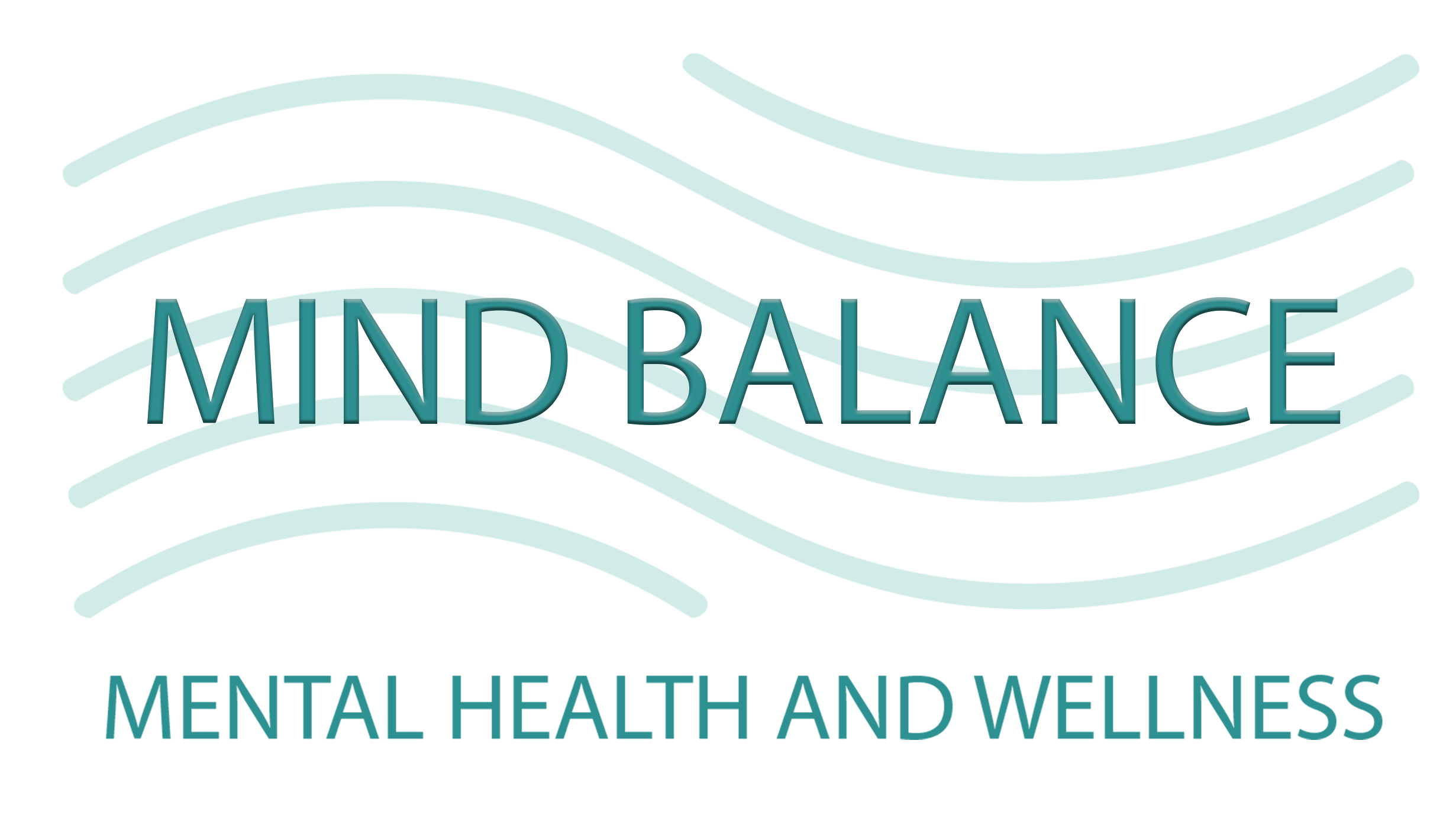Mind Balance Mental Health Overview
Our Approach to Mental Wellness
At Mind Balance Mental Health and Wellness, we prioritize a holistic approach to mental wellness that combines evidence-based practices with compassionate care. Our team of dedicated professionals understands the complexities of mental health and is committed to providing personalized treatment plans tailored to each individual’s unique needs.
We specialize in a range of mental health treatments, including anxiety treatment in Charlotte, depression treatment, and ptsd treatment, among others. Our integrated approach encompasses various therapeutic modalities, medication management, and alternative therapies to ensure comprehensive care.
Our primary goal is to help individuals achieve mental well-being through a combination of Cognitive Behavioral Therapy (CBT), medication options, and other customized treatments. Research has shown that CBT is one of the most effective treatments for anxiety disorders, including Generalized Anxiety Disorder, Social Anxiety Disorder, Obsessive-Compulsive Disorder, and Post-Traumatic Stress Disorder. We utilize CBT extensively in our practice to help clients develop specific skills to manage their symptoms and improve their quality of life.
We also ensure that our clients have access to the latest advancements in tele-psychiatry and outpatient psychiatry, making mental health care more accessible and convenient. Our services include:
- Personalized Treatment Plans: Tailored to individual needs, combining therapy, medication, and alternative treatments.
- Evidence-Based Therapies: Including CBT, which is proven effective for a range of anxiety disorders.
- Comprehensive Care: Addressing various aspects of mental health through therapy, medication, and lifestyle changes.
| Service | Description |
|---|---|
| Cognitive Behavioral Therapy (CBT) | Effective for anxiety, depression, PTSD, and more |
| Medication Management | Personalized medication plans for optimal results |
| Tele-Psychiatry | Convenient online sessions for remote care |
| Outpatient Psychiatry | In-person sessions for ongoing support |
Our commitment to mental wellness goes beyond traditional treatment methods. We encourage clients to adopt lifestyle changes and mindfulness practices to enhance their overall well-being. This holistic approach ensures that every aspect of an individual’s mental health is addressed, leading to sustainable improvement and resilience.
For more information on our treatment options and approaches, explore the following articles:
We are dedicated to guiding you through your mental health journey with understanding, expertise, and unwavering support.
Treating Anxiety with Mind Balance
At Mind Balance Mental Health and Wellness, we customize our anxiety treatments to meet individual needs. Our comprehensive approach includes Cognitive Behavioral Therapy (CBT) and medication options to ensure the best outcomes.
Cognitive Behavioral Therapy (CBT)
Cognitive Behavioral Therapy (CBT) is a cornerstone of our anxiety treatment plans. Recognized for its effectiveness, CBT helps individuals understand how their thoughts affect emotions and behaviors, aiding in the replacement of negative reactions with positive alternatives. It is one of the most effective treatments for Generalized Anxiety Disorder (GAD) and is usually offered before medication (NHS).
CBT is designed to address various specific anxiety disorders, including:
- Generalized Anxiety Disorder (GAD)
- Panic Disorder
- Social Anxiety Disorder
- Obsessive-Compulsive Disorder (OCD)
- Posttraumatic Stress Disorder (PTSD)
- Prolonged Grief Disorder
CBT involves teaching specific skills to improve symptoms and gradually reintroduce individuals to activities they may have avoided due to anxiety. Exposure therapy, a component of CBT, involves gradual exposure to anxiety triggers, which helps build confidence in managing anxiety.
If you are interested in learning more about specific therapies we offer, you might also explore our dedicated pages on ocd treatment and ptsd treatment.
Medication Options
Medication can be an essential component of our anxiety treatment plans. At Mind Balance, we understand that each patient’s needs are unique, and we offer a range of medication options tailored to manage anxiety symptoms effectively. The decision to include medication is personalized, depending on the severity of the disorder, individual preferences, and response to initial treatments like CBT.
| Type of Medication | Example | Utility |
|---|---|---|
| SSRIs | Sertraline | Commonly prescribed for chronic anxiety |
| SNRIs | Venlafaxine | Useful for both anxiety and depression |
| Benzodiazepines | Alprazolam | Prescribed for short-term relief of acute anxiety |
| Beta-Blockers | Propranolol | Helps manage physical symptoms of anxiety |
Our approach to medication includes:
- A thorough assessment by our psychiatric team to determine the most suitable medication.
- Regular follow-ups to monitor effectiveness and manage side effects.
- Collaboration with our psychotherapy team to integrate psychotherapy and medication for a balanced treatment plan.
Choosing the right form of treatment often involves considering the benefits of psychotherapy versus medication (Source), as well as developing long-term treatment strategies that focus on sustainable mental wellness.
At Mind Balance, we are committed to offering the best [anxiety treatment] and helping individuals lead fulfilling lives by managing their anxiety effectively. Explore more about our mental health treatment services, or connect with us for personalized guidance and support.
Specific Treatment Modalities
At Mind Balance Mental Health and Wellness, we offer a variety of specialized treatment methods to address anxiety disorders. Our approach ensures tailored care to meet the unique needs of each individual. Here, we focus on two specific modalities that have proven effective for anxiety treatment: exposure therapy and pharmacological treatments.
Exposure Therapy
Exposure therapy is a cornerstone in the treatment of anxiety disorders. It involves confronting fears to desensitize individuals and reduce anxiety (Better Health Victoria). This modality is effective for various anxiety-related conditions, including phobias, obsessive-compulsive disorder (OCD treatment), and post-traumatic stress disorder (PTSD treatment).
| Anxiety Disorder | Effective Exposure-Based Techniques |
|---|---|
| Specific Phobias | Systematic Desensitization |
| OCD | Exposure and Response Prevention (EX/RP) |
| PTSD | Prolonged Exposure Therapy (PE) |
For obsessive-compulsive disorder, exposure and response prevention (EX/RP) therapy uses both imaginal and in vivo exposures, successfully reducing compulsive behaviors. In treating PTSD, prolonged exposure therapy (PE) has shown significant improvements by having patients repeatedly revisit and process trauma memories (Source).
Pharmacological Treatments
Pharmacological treatments are another effective strategy we employ to help manage anxiety symptoms. Various medications are available to target different aspects of anxiety disorders. These include:
- Selective Serotonin Reuptake Inhibitors (SSRIs):
- Commonly prescribed first-line treatment.
- Effective in treating generalized anxiety disorder, social anxiety disorder, and panic disorder.
- Serotonin-Norepinephrine Reuptake Inhibitors (SNRIs):
- Used for generalized anxiety disorder and other forms of anxiety.
- Often prescribed if SSRIs are not effective.
- Benzodiazepines:
- Provides immediate relief of anxiety symptoms.
- Typically used for short-term management due to potential for dependency.
- Buspirone:
- Non-benzodiazepine medication for generalized anxiety disorder.
- Less sedative than benzodiazepines.
| Medication Type | Common Uses | Potential Side Effects |
|---|---|---|
| SSRIs | GAD, SAD, Panic Disorder | Nausea, Insomnia, Sexual Dysfunction |
| SNRIs | GAD, Panic Disorder | Increased Blood Pressure, Sweating |
| Benzodiazepines | Acute Anxiety, Panic Attacks | Sedation, Dependency |
| Buspirone | GAD | Dizziness, Headaches |
Pharmacological treatments are often used in conjunction with psychotherapy to provide comprehensive care. For individualized recommendations or to discuss long-term treatment strategies, please consult our mental health professionals.
By integrating these specific treatment modalities, we ensure that each person receiving care at Mind Balance Mental Health and Wellness benefits from a tailored and effective treatment plan. For more information about our services and other treatment options, visit our pages on behavioral health treatment and depression treatment.
Managing Anxiety Symptoms
We at Mind Balance Mental Health and Wellness understand that managing anxiety symptoms is crucial for overall mental well-being. Our comprehensive approach includes various methods to help alleviate anxiety.
Exercise and Physical Activity
Exercise plays a significant role in the management of anxiety symptoms. Engaging in regular physical activity helps to divert one’s mind from anxiety-inducing issues and triggers the release of endorphins, the body’s natural feel-good hormones. This can result in a noticeable reduction in anxiety symptoms.
Here are some types of physical activities known to help manage anxiety:
- Aerobic exercises: Running, walking, swimming
- Strength training: Weight lifting, resistance bands
- Flexibility exercises: Yoga, stretching
Mindfulness and Relaxation Techniques
Mindfulness and relaxation techniques are essential tools in managing anxiety. These strategies help individuals focus on the present moment, reducing the intensity of anxiety symptoms.
Mindfulness Practices
Mindfulness involves staying present and fully engaging with the current moment. Practices such as mindful breathing and guided meditation can significantly reduce anxiety symptoms. Here are some common mindfulness techniques:
- Mindful Breathing: Taking slow, deep breaths to focus the mind
- Body Scan Meditation: Paying attention to physical sensations throughout the body
- Guided Imagery: Visualizing calming and peaceful scenarios
Relaxation Techniques
Relaxation techniques, such as proper breathing methods, play a crucial role in reducing muscle tension and helping individuals cope with the physical symptoms triggered by anxiety.
Here are a few effective relaxation techniques:
- Progressive Muscle Relaxation: Tensing and relaxing different muscle groups
- Aromatherapy: Using essential oils to promote relaxation and reduce anxiety (WebMD)
Other valuable methods include:
- Weighted Blankets: Providing pressure that helps the body relax and alleviate anxiety symptoms (WebMD)
- Herbal Supplements: Chamomile and other herbal remedies can help in managing generalized anxiety (WebMD)
For more guidance on these techniques, refer to our article on mental health treatment options.
These approaches to managing anxiety are just part of the comprehensive and personalized treatment plans we offer at Mind Balance Mental Health and Wellness. We are committed to helping you achieve mental well-being through a variety of effective strategies. For additional support, consider our ptsd treatment and depression treatment services.
Understanding Anxiety Disorders
Prevalence and Statistics
Anxiety disorders are among the most prevalent mental health conditions, affecting a significant portion of the global population. In the United States alone, more than 19% of adults experience anxiety disorders each year. When considering lifetime prevalence, around 32% of Americans are impacted by anxiety disorders (NCBI).
Globally, the numbers are equally concerning. According to the World Health Organization, approximately 264 million people live with anxiety disorders, marking a 15% increase since 2005 (NCBI). These statistics underscore the importance of seeking appropriate anxiety treatment to manage symptoms effectively.
| Statistic | Percentage |
|---|---|
| Annual prevalence in the US | 19% |
| Lifetime prevalence in the US | 32% |
| Global prevalence | 264 million people (15% increase since 2005) |
Types of Anxiety Disorders
There are several types of anxiety disorders, each with distinct features. Understanding these differences is crucial for determining the most effective mental health treatment options.
- Generalized Anxiety Disorder (GAD): Characterized by chronic, excessive worry about various aspects of daily life.
- Social Anxiety Disorder (SAD): Involves intense fear of social situations where one might be judged or scrutinized by others.
- Specific Phobia (SP): An irrational and excessive fear of a specific object, situation, or activity.
- Panic Disorder: Marked by recurrent panic attacks that include sudden feelings of terror and physical symptoms like heart palpitations.
- Obsessive-Compulsive Disorder (OCD): Characterized by unwanted, recurring thoughts (obsessions) and repetitive behaviors (compulsions). For more details on treatment, refer to our ocd treatment.
- Post-Traumatic Stress Disorder (PTSD): Develops after exposure to a traumatic event, causing various symptoms like flashbacks and severe anxiety. Learn more about our ptsd treatment.
Different treatments, including cognitive behavioral therapy (CBT) and medication options, can help manage these conditions. For those exploring long-term treatment options, understanding the differences between psychotherapy and medication is vital.
By recognizing these disorders and their prevalence, we can better tailor our approach to behavioral health treatment and anxiety treatment, providing comprehensive care to our patients.
Considering Treatment Options
At Mind Balance Mental Health and Wellness, we integrate a range of treatment options to tailor care for individuals experiencing anxiety. Understanding the benefits and limitations of psychotherapy and medication aids in developing effective long-term strategies for managing anxiety.
Psychotherapy vs. Medication
Psychotherapy and medication are two principal treatment approaches for anxiety disorders. Each has its own strengths and is often used in combination for best results.
Psychotherapy
Cognitive Behavioral Therapy (CBT) is among the most effective treatments for Generalized Anxiety Disorder (GAD) and is usually recommended as the initial treatment option. CBT helps individuals recognize and change negative thought patterns and behaviors that contribute to anxiety (NHS).
| Treatment | Focus | Effectiveness | Typically Used For |
|---|---|---|---|
| Cognitive Behavioral Therapy (CBT) | Changing negative thought patterns | Highly effective | GAD, Panic Disorder, Social Anxiety |
Medication
Several types of medications are used for anxiety disorders, and the choice depends on the specific type of disorder and other co-occurring health issues. Common medications include:
- Selective Serotonin Reuptake Inhibitors (SSRIs): Often the first-line treatment for anxiety disorders, they effectively reduce anxiety symptoms with fewer side effects.
- Selective Norepinephrine Reuptake Inhibitors (SNRIs): Similar to SSRIs, they are effective for treating both anxiety and depression.
- Tricyclic Antidepressants (TCAs) and Monoamine Oxidase Inhibitors (MAOIs): Effective but less commonly used due to side effects (CAMH).
| Medication Class | Description | Used For |
|---|---|---|
| SSRIs | Increase serotonin levels in the brain | Panic Disorder, Social Anxiety, GAD |
| SNRIs | Increase serotonin and norepinephrine levels | Panic Disorder, Social Anxiety, GAD |
| TCAs, MAOIs | Affect multiple neurotransmitters | GAD, Agoraphobia |
It’s essential to discuss the benefits, risks, and side effects of medications with a healthcare provider.
Long-Term Treatment Strategies
Long-term strategies for managing anxiety often involve a combination of therapy, medication, and lifestyle changes (Better Health Victoria).
Therapy-Based Approaches
Continuing psychotherapy, such as CBT, is effective for long-term symptom management and preventing relapse. Regular sessions can help maintain progress and offer support for new challenges.
| Strategy | Description | Benefits |
|---|---|---|
| Ongoing CBT | Regular therapy sessions | Sustained symptom management |
| Support groups | Peer support and shared experiences | Emotional support and coping strategies |
Medication Management
While medications are often viewed as a short-term solution, some individuals may benefit from long-term use under the guidance of a healthcare professional.
| Medication | Long-Term Use | Considerations |
|---|---|---|
| SSRIs and SNRIs | Sometimes necessary | Monitor side effects regularly |
| Short-term tranquilizers | Only for acute situations | Risk of dependence |
Lifestyle Adjustments
Lifestyle modifications can complement psychotherapy and medication, promoting overall mental well-being. These changes might include regular exercise, a balanced diet, adequate sleep, and mindfulness practices.
For more detailed information on managing anxiety symptoms through exercise, mindfulness, and relaxation techniques, visit our guides on mental health treatment and behavioral health treatment.
By considering psychotherapy, medication, and lifestyle changes, individuals can develop a comprehensive plan to manage anxiety effectively. Learn more about our tele-psychiatry services and outpatient psychiatry options to support your mental health journey.





